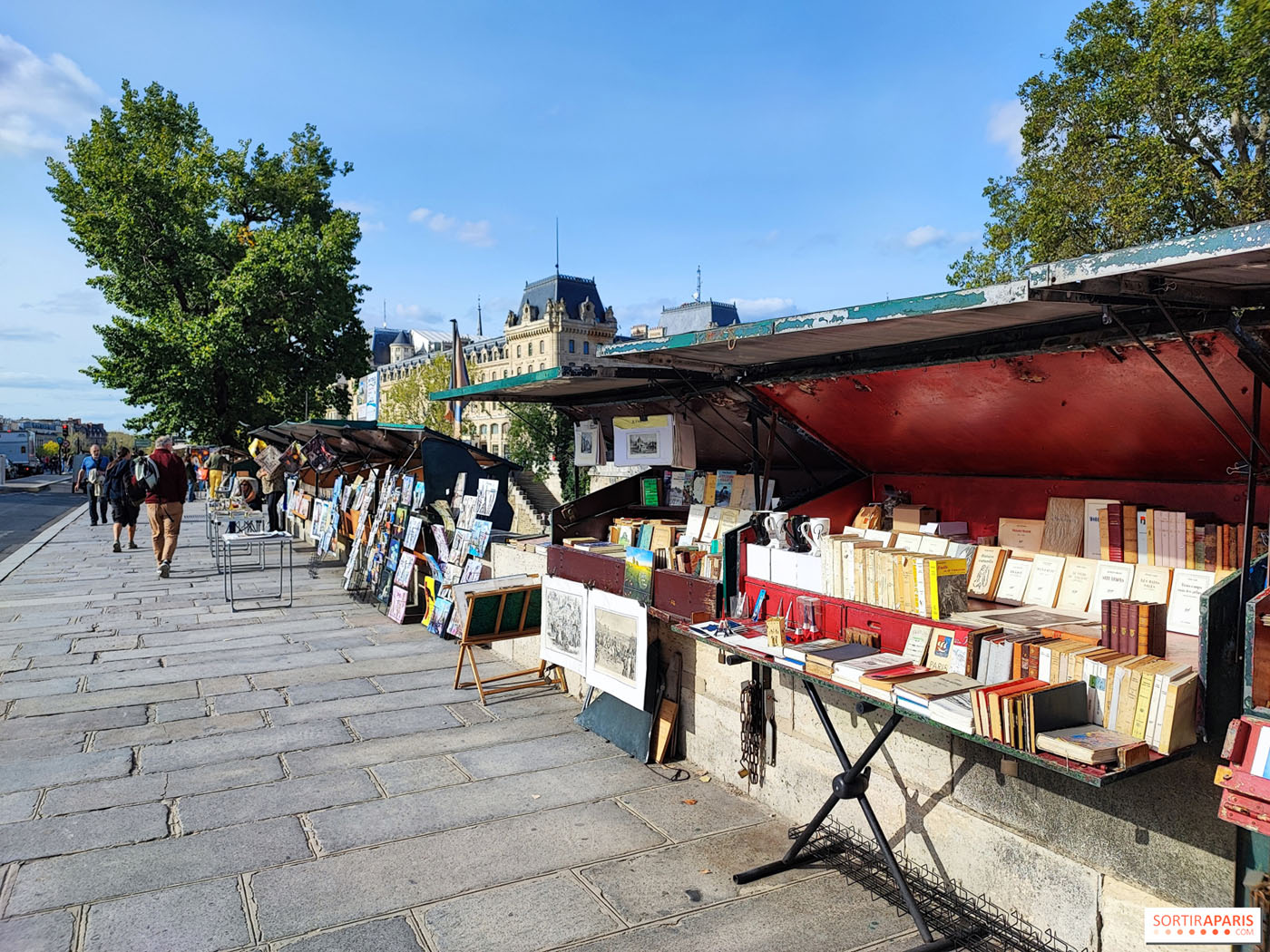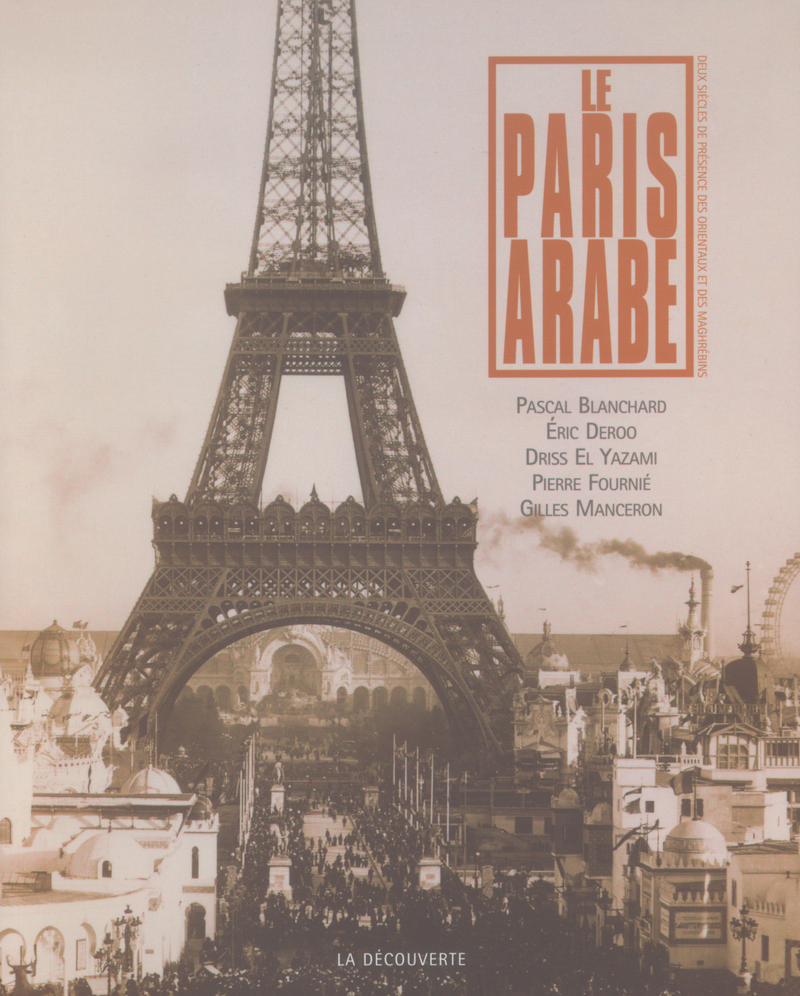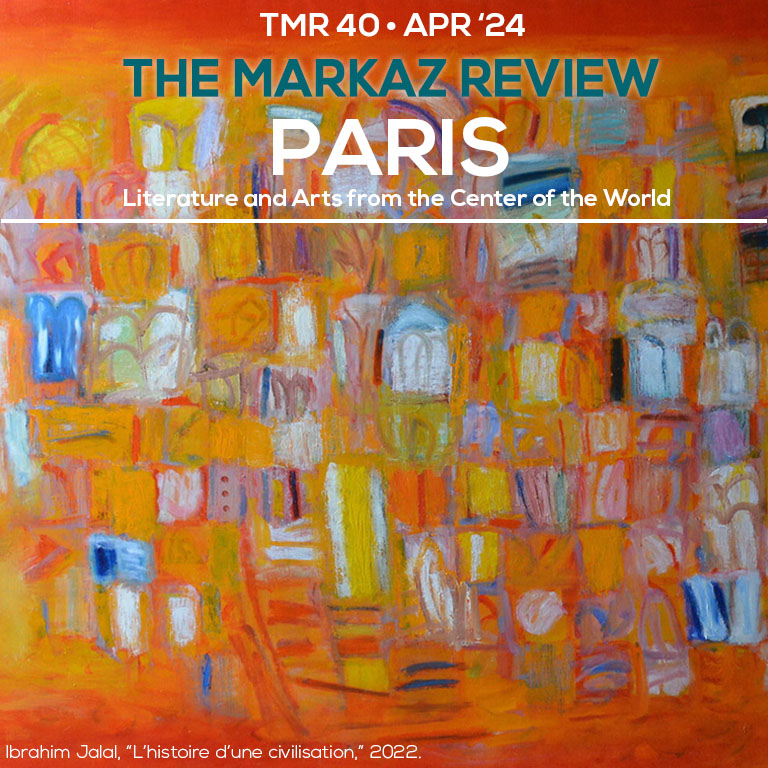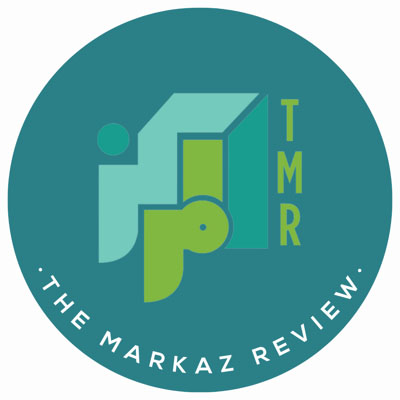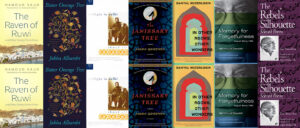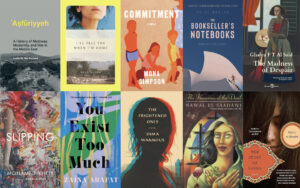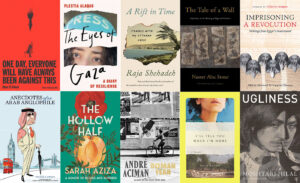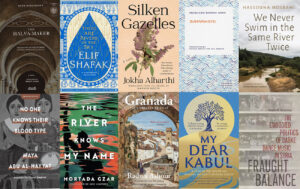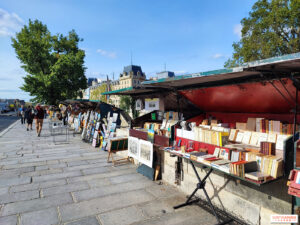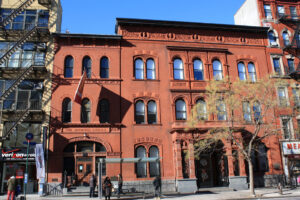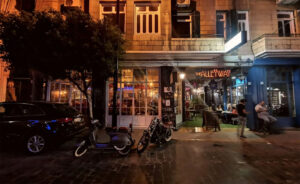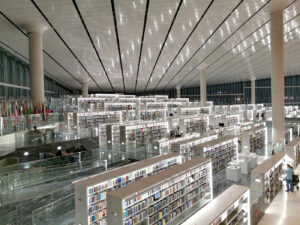Dive into the rich tapestry of literature by Francophone writers from the Middle East with this curated reading list.
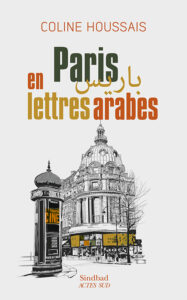
Paris en lettres arabes
by Coline Houssais
Actes Sud
May 2024
Reversing the tendency to approach the Orient from a Western perspective, this book examines the relationship between Arab authors and France in general, and Paris in particular. What is the relationship between these writers from elsewhere and French literary, political and intellectual circles? How does the City of Light appear in their works? A city of refuge for exiles, a laboratory for adventurers, a place to turn to when despair takes hold, Paris remains a landmark that cannot be ignored.
Spanning four centuries to the present day, this energetic and erudite work explores the mysteries and ambivalences of this long-standing, rich and multifaceted relationship, revealing Paris as the ex situ capital of Arab literature.
Coline Houssais is a translator, journalist, producer and independent researcher specializing on cultural history of Northern African and Near Eastern migration in Western Europe as well as on music from the Arab world. Her latest publications include an anthology of Arab music, Musiques du Monde Arabe – une anthologie en 100 artistes (Le Mot et le Reste, 2020) and the first two volumes of Araborama (Institut du Monde Arabe/Le Seuil).
Read an excerpt in The Markaz Review.
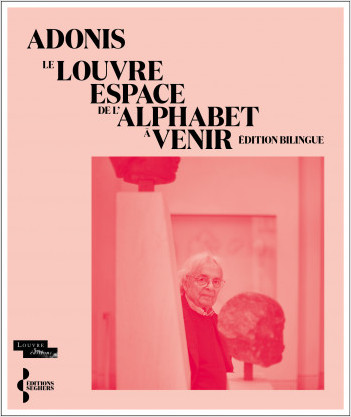
Le Louvre, espace de l’alphabet à venir
by Adonis
Éditions Seghers
March 2024
Considered “the man who renewed Arabic poetry” (The New Yorker), Adonis is one of the great modernizers of the Arabic language and of poetry as a whole. He has an ambiguous relationship with the very concept of the museum, so keen is he to take art into the future. For the first time, he devotes an entire work to one of them: Le Louvre, espace de l’alphabet à venir, a poem in seven tableaux, published here in a bilingual edition.
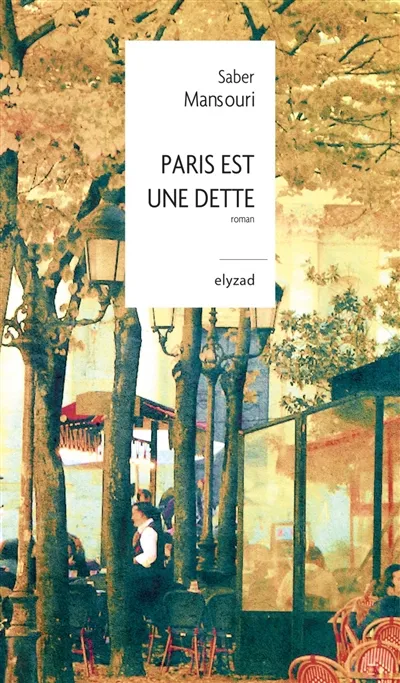
Paris est une dette
by Saber Mansouri
Éditions Elyzad
March 2024
“When I don’t feel well in Paris, I think back to the beginning, trying to understand why I left my family and crossed the Mediterranean. And as each time, I get lost, I can’t find a single reasonable explanation for my exile.”
A young Tunisian arrives in Paris, invited by a prestigious Sorbonne professor to continue his studies with a thesis. Confident in his future glory, a lover of classical culture — but who’s still interested in Bossuet? But who’s still interested in Bossuet? — he wanders from disillusionment to disillusionment before rediscovering the melody of words.
A fine score about students who leave their homeland, their hearts full of hope, determined to embrace the French spirit, Paris est une dette is a funny, cruel ode to reality.
Born in Tunisia in 1971, with a doctorate in Ancient Greek History, Saber Mansouri taught Greek Antiquity at university for several years before devoting himself to writing. In 2003, he founded the “Maktaba-Bibliothèque” collection published by Fayard, featuring unpublished texts from Arab-Muslim culture. Among his works: Sept morts audacieux et un poète assis, novel, Elyzad, 2020 and Un printemps sans le peuple. Une histoire arabe usurpée (1911- 2011), essay, Passés Composés, 2022.
Le Paris arabe, Deux siècles de présence des Orientaux et des Maghrébins
Editors Pascal Blanchard, Éric Deroo, Driss El Yazami, Pierre Fournie, Gilles Manceron
Éditions de la Découverte
For two centuries, Paris has been an Arab capital. A crossroads for cultures and music from the East and Maghreb, and the leading city for immigration from North Africa, it is also a privileged place for opponents, diplomats and secret negotiations… Paris has always been at the heart of France’s paradoxical relationship with the Arab-Muslim world. Forgotten, obscured, inaudible, this history disturbs and seeks its place in our collective memory. Beginning with the Egyptian expedition, then the conquest of Algeria, through universal exhibitions and conflicts, Le Paris arabe continues with the beur generation, Zidane’s face on the Champs-Élysées and the consultation of Muslims in France. But Paris, a city of integration, was also, for North Africans, the capital of exclusion whose astonishing institutional set-up this book recounts step by step. From Abd el-Kader’s sumptuous voyage to the Turcos of the Commune, from belly dancers to brothels, fantasies about the Orient are given free rein. Powerful images collide in memories and in the city, between the building of the Grand Mosque, the massacre of October 17, 1961, the March of the Beurs in 1983 and the waves of murderous attacks in the 1980s and 1990s. Thousands of unearthed and previously unpublished documents and astonishing accounts allow us to reconstruct, fragment by fragment, the essential moments of this shared history.
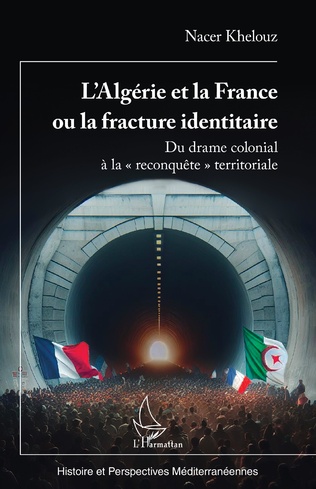
L’Algérie et la France ou la fracture identitaire
by Nacer Khelouz
Éditions L’Harmattan
March 2024
“France, you either love it or you leave it” cried Nicolas Sarkozy in 2012. It was then that the reign of “uncomplicated” speech towards a section of the French population began. Yet this escalation in stigmatization is neither new nor even the latest. Let’s not forget the famous frontist equation “immigration = unemployment = insecurity.”
Today, Éric Zemmour and a now parliamentary far-right are sharpening the terms, taking this logic of discrimination “Muslims = Islamism = Great Replacement” to the extreme.
The question of identity at the root of Algerian-French tensions goes back a long way. Orientalism in all its forms and colonialism have largely fed on it. Today, it is being exploited by the extreme right, which finds many relays in certain media. Nacer Khelouz’s book sets out to deconstruct this discourse, with a particular focus on the arts and literature.
Born in Algeria, Nacer Khelouz is a professor of French and Francophone literature, and a former Paris resident. He graduated in French literature and went on to do a master’s degree in FLE at Paris 8, and has taught in a number of colleges in France. He holds a doctorate in literature from the University of Pittsburgh, and has published numerous essays on issues of immigration and identity.
—Jordan Elgrably and Sarah Naili
To dig further back in time, explore: Paris, librairie arabe by Maud Leonhardt Santini, Éditions Parenthèses / MMSH
From the 1980s onwards, Paris became home to a growing number of Arab intellectuals from the Middle East. Refugees, political opponents, journalists, writers and artists in exile developed activities that made Paris a relay city, an “Arab capital” of culture. And yet, throughout the second half of the 20th century, the rise of the Anglo-Saxon Empire undermined the centrality of Paris, long the hegemon of the arts and letters. So why do people still come to Paris? …
Discover even more titles with Paris in Arabic Literature, a listing of books offered by Sens Critique. And find plenty of Paris Arabic books on the LEILA website.



